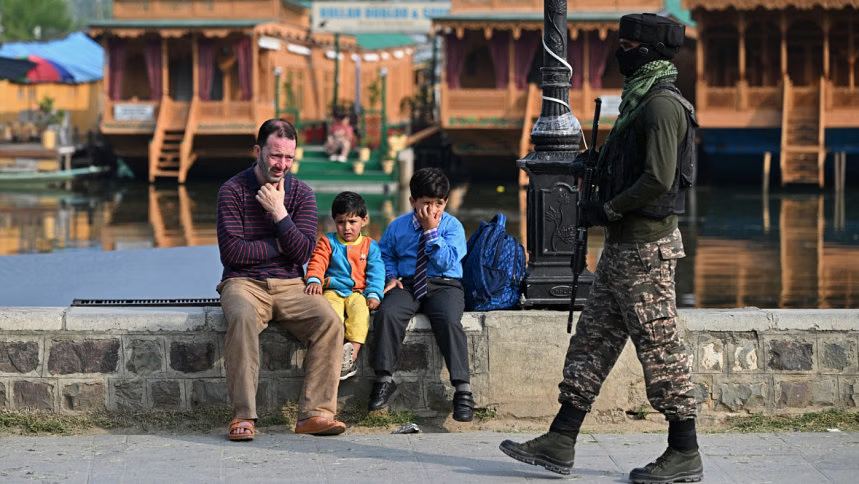World
India and Pakistan Observe First Quiet Night After Ceasefire in Kashmir

The Indian army has reported a peaceful night along the border with Pakistan. This came after a surprise ceasefire agreement between the two countries over the weekend. It was the first calm night in days, bringing relief to people in the conflict zone.
The ceasefire took effect on Saturday. It followed four days of heavy fighting across the Line of Control (LoC) in the Kashmir region. Both sides had exchanged missiles, drones, and artillery fire. At least 60 people were killed. Thousands were forced to flee their homes.
What Happened in Kashmir?
The violence began early Wednesday. India launched missile strikes on what it called “terrorist camps” in Pakistan-administered Kashmir. This was a response to a deadly attack on April 22. That attack targeted tourists in Indian-administered Kashmir. Twenty-six civilians died.
India accused Pakistan of supporting the attackers. Pakistan denied any link to the assault. In return, Pakistan responded with heavy shelling. It also claimed to have shot down five Indian fighter jets. India has not confirmed this claim.
The clashes were some of the worst since the 1999 Kargil conflict. The fighting raised fears around the world. Many worried the conflict could grow into a full-scale war between the nuclear-armed nations.
US President Steps In
The ceasefire was announced on Saturday in an unexpected move. It was shared first on social media by U.S. President Donald Trump. The announcement surprised many, as talks between India and Pakistan had stalled for years.
There was doubt at first. Just hours after the truce, both sides accused each other of breaking it. But by Monday morning, the Indian army confirmed that no new violence had occurred overnight.
“The night remained largely peaceful across Kashmir and other areas along the international border,” an official army statement said.
Calm in Poonch After Heavy Losses
The frontier town of Poonch was one of the areas worst hit by the fighting. Located in Indian-administered Kashmir, it saw the deaths of at least 12 residents. More than 60,000 people had to leave their homes.
On Sunday, some people began returning to Poonch. But many are still afraid. They fear the peace may not last long.
“We want peace,” said a local schoolteacher. “But we have seen this before. Ceasefires happen, and then fighting starts again.”
Why Kashmir Is Always Tense
Kashmir is a region claimed by both India and Pakistan. The two countries have fought several wars over it since 1947, when they gained independence from Britain. The territory is now split. India controls the southern and central parts. Pakistan holds the northern areas.
Tensions have been especially high since 2019. That year, India’s Prime Minister Narendra Modi removed the region’s special status. Kashmir had enjoyed a level of autonomy for decades. But Modi’s government put the area under direct rule from New Delhi. Many Kashmiris protested the move.
Since then, militant activity in the region has increased. Several armed groups want full independence or a merger with Pakistan. India says these groups get support from Pakistan. Pakistan denies this.
Global Concern Over Nuclear Risk
Both India and Pakistan have nuclear weapons. Any conflict between them causes global alarm. Many world leaders called for calm over the weekend. The United Nations, the European Union, and countries like China and Russia urged both sides to stop the violence.
Experts say the U.S. may have played a key role in securing the truce. “Washington likely pushed both governments to agree to a ceasefire,” said regional analyst Reema Sethi. “No one wants to see a war between two nuclear neighbors.”
What Happens Next?
So far, the ceasefire seems to be holding. But many people in Kashmir remain cautious. Some fear this peace may only be temporary.
In the past, similar ceasefires have broken down within days or weeks. Trust between India and Pakistan is low. There are still deep disagreements over Kashmir and terrorism.
Still, for now, the calm brings hope.








